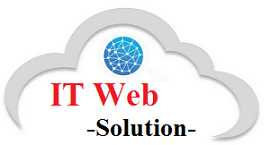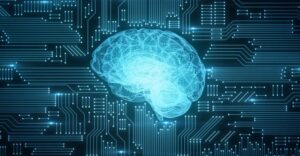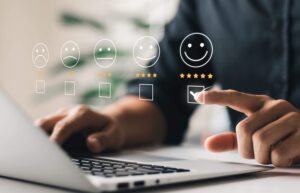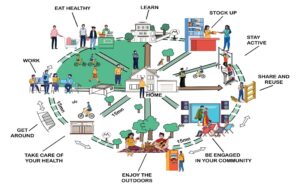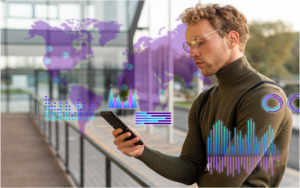AI-Driven Human Resources Strives to Balance ‘Human’ and ‘Resources’

In the modern workplace, the convergence of artificial intelligence (AI) and human resources (HR) is transforming the way organizations manage their workforce. AI-driven HR solutions are revolutionizing traditional HR practices, providing new tools to optimize talent management, employee engagement, and overall organizational performance. Globality’s Sonia Mathai points out that AI is creating a new brand of HR, from hiring to scheduling, benefits to termination to access control. This powerful combination seeks to strike a delicate balance between the ‘human’ aspect of HR, focusing on employee well-being and development, and the ‘resources’ aspect, emphasizing workforce optimization and efficiency.
The Rise of AI in HR
AI has rapidly integrated itself into various aspects of HR management, making processes faster, more accurate, and data-driven. From talent acquisition and onboarding to performance management and employee engagement, AI-driven HR solutions are enhancing every step of the employee lifecycle.
1. Talent Acquisition:
AI streamlines the recruitment process by automating candidate sourcing, resume screening, and matching candidates to job requirements. Machine learning algorithms analyze vast amounts of data, enabling HR teams to identify the best-fit candidates efficiently. This not only saves time and resources but also enhances the likelihood of hiring top talent.
2. Onboarding and Training:
AI-driven HR platforms facilitate personalized onboarding experiences for new employees. By analyzing an employee’s skills, background, and role, AI can deliver targeted training and development plans. These tailored programs help new hires quickly adapt to their roles and contribute effectively to the organization.
3. Employee Performance Management:
AI-powered performance management tools provide continuous feedback and performance evaluations based on real-time data. By analyzing employee performance metrics, HR can identify strengths, areas for improvement, and opportunities for growth. This data-driven approach ensures more constructive performance reviews and meaningful career development discussions.
4. Employee Engagement:
AI plays a vital role in enhancing employee engagement. By analyzing employee feedback, sentiment, and behavior, AI-driven HR platforms can identify engagement drivers and potential issues. This information enables HR to proactively address concerns, improve workplace culture, and boost overall employee satisfaction.
5. Predictive Analytics:
One of the most significant advantages of AI in HR is its ability to predict future outcomes based on historical data. Predictive analytics can forecast workforce trends, identify flight risks, and assist in strategic workforce planning. This empowers HR leaders to make proactive decisions and develop strategies to attract, retain, and develop talent.
The Balance Between ‘Human’ and ‘Resources’
While AI brings immense benefits to HR, it is crucial to maintain a balance between technology and the human aspect of HR management. Organizations must remember that employees are not just resources; they are individuals with unique needs, aspirations, and emotions.
1. Personalization
AI-driven HR solutions should be designed with personalization in mind. Tailoring employee experiences based on individual preferences and career goals fosters a sense of belonging and increases engagement. It’s essential to remember that employees are more than just data points; they are individuals with diverse talents and backgrounds. You can follow Controlio HR analytics use cases.
2. Human Interaction
Despite the increasing use of AI in HR, human interaction remains vital. HR professionals must maintain face-to-face communication and emotional intelligence to address complex employee issues and provide empathetic support.
3. Ethical AI Use
Organizations must prioritize ethical AI use and ensure transparency in how AI-driven decisions are made. Employees should be aware of how their data is used, and measures should be in place to prevent bias in AI algorithms.
Conclusion
AI-driven HR is a powerful force that has the potential to revolutionize workforce management and elevate employee experiences. However, it is essential to strike a harmonious balance between the ‘human’ and ‘resources’ aspects of HR. By keeping the focus on employee well-being, growth, and development, AI-driven HR can truly enhance the human experience within the workplace, creating a more engaged, motivated, and productive workforce.
